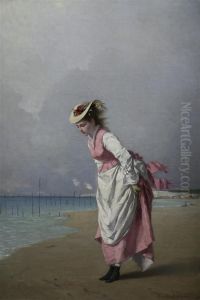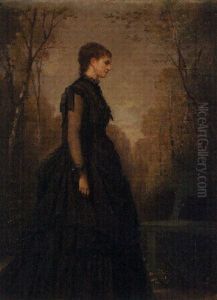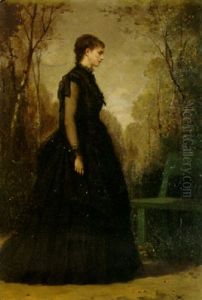Eugene Leygue Paintings
Eugène Leygue was a French artist born in 1876 in the town of Tours, France. He was primarily known for his work as a sculptor. Leygue showed artistic promise from a young age, and his talent was nurtured through formal training. He studied under renowned sculptors such as Alexandre Falguière and Louis-Ernest Barrias, both of whom played significant roles in shaping the artistic landscape in France during the late 19th and early 20th centuries.
Throughout his career, Eugène Leygue participated in various exhibitions, most notably the Salon des artistes français, which was an annual event that showcased the works of French artists in different fields. His sculptures were well-received, and he earned accolades for his work, which included medals at these exhibitions. Leygue's style was characteristic of the period, reflecting the influences of his teachers and the prevailing artistic movements of the time, which included Realism and later, hints of modernism.
In addition to his participation in exhibitions, Leygue's work also involved several public commissions, which included war memorials, a common type of commission for sculptors in the aftermath of World War I. These memorials were significant in that they commemorated the soldiers who had fallen during the war and served as a symbol of collective mourning and national pride.
Eugène Leygue's contributions to art extended beyond his own creations. He was also an educator who passed on his knowledge and skills to a new generation of artists. His teachings would have been influential in the development of French sculpture during the first half of the 20th century, a period that saw the transition from traditional to more contemporary forms of art.
Leygue's life spanned a tumultuous period in European history that included both World Wars, and these events inevitably influenced the artistic community in France. Despite the challenges of the times, he continued to create and contribute to the cultural landscape until his death in 1962. Eugène Leygue's legacy lives on through his sculptures, which can be found in various public spaces and collections, serving as a testament to his skill and dedication to the arts.


